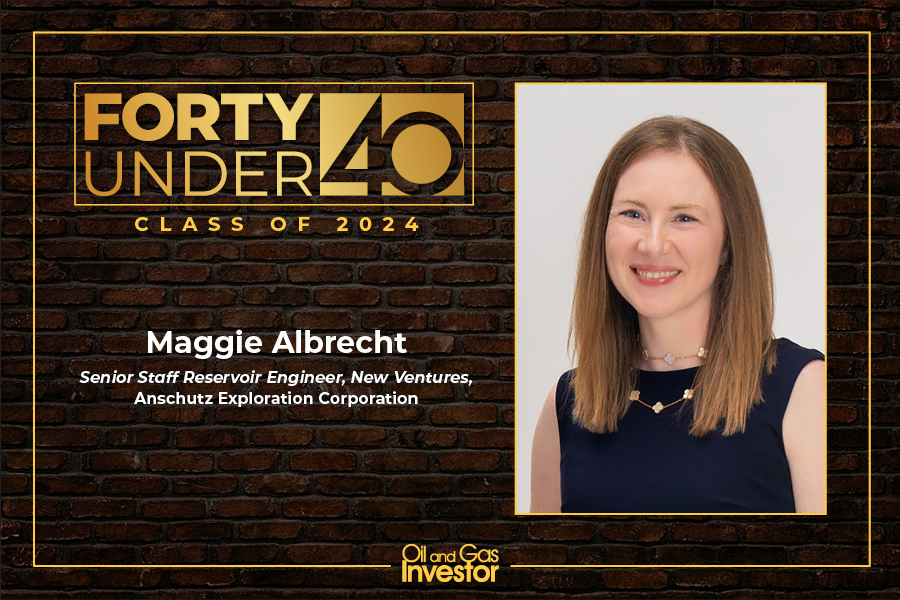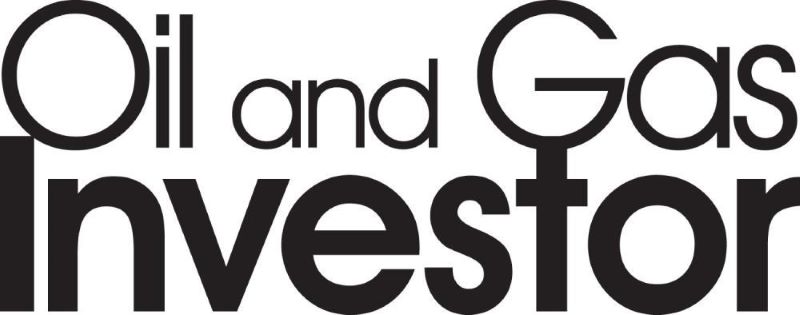Maggie Albrecht

Presented by:

Maggie Albrecht was always destined to be going places in her career, but she didn’t imagine, growing up in a Chicago suburb, she’d be traveling in “helicopters, personnel baskets and some questionable airplanes.” She’s also driven all over North Dakota, ventured into the oil patch on geology field trips and worked in business units that achieved production of 100,000 boe/d. “Though any one of those things on its own is just another day at the office for so many in this business,” she said, “I am grateful for the many opportunities I have had to witness the wide scope and complexity of this industry.”
Which of your professional achievements are you most proud?
Professionally, I am most proud of the first two papers I co-authored, which covered aspects of our modeling approach. Both papers were written while on maternity leave with a demanding 1-month-old infant. I presented both papers at URTeC, with one receiving an award for best in its theme (geochemistry).
What has been your most challenging project to date, and how did you meet the challenge and accomplish your goal?
As a reservoir engineer, I have been a part of several teams tasked with challenging subsurface modeling projects, from conventional water floods in Equatorial Guinea to modeling hydraulic fractures in unconventional plays in North America. These projects required integrating a host of data over time and space, and calibrated models were used to inform business recommendations regarding field operations and capital investments. Meeting these challenges required curiosity, commitment, and close collaboration on multidisciplinary teams of subject matter experts. These types of projects were made possible by the support of companies and a broader industry community committed to investing in new applications of technology.
What keeps you motivated and passionate about working in the oil and gas industry?
I am particularly inspired by the industry leaders that have achieved great success, then use that success as a platform to share their time, knowledge and talents for the betterment of humanity. These leaders that educate the public on our industry, seek to influence policy, collaborate with related industries such as geothermal, shape universities, and connect people and ideas at industry technical conferences have a level of persistence and foresight that I hope to emulate.
Which career milestone did you reach sooner than you had planned, and what helped you reach it earlier than expected?
An important milestone in my career so far has been successfully prioritizing my family in the city where we wanted to live while working on challenging, new problems. Throughout my career, I have always sought out opportunities that sparked my curiosity. From my first role as a drilling engineer in deepwater, to learning reservoir simulation and optimizing waterfloods, to understanding hydraulic fracturing via new applications of diagnostic tools in unconventional plays, every role I have taken has had a steep learning curve.
What advice would you give other young professionals in the industry?
Be intentional about how you want to spend your time—with loved ones, life goals and your career. Become financially literate and make good choices so you have the freedom to take risks or do what you value. Professionally, I encourage engineers to work in the field early in your career. Seek out challenging work you enjoy and build competency in as many areas as you can quickly. But also, work on those areas that come less naturally, whether it is emotional intelligence, public speaking or building a network.
What do you think young industry members as a group have to offer that is unique to them?
Young industry members are not daunted by new software or technology and will drive business recommendations in novel ways.
Take a look at the rest of the Forty Under 40 2024 winners.

